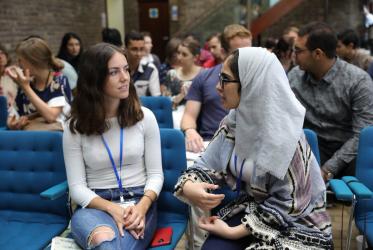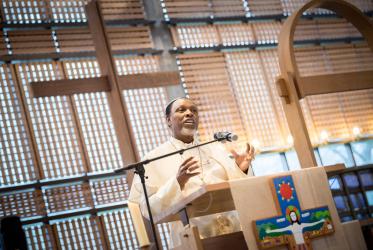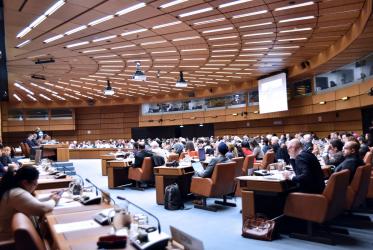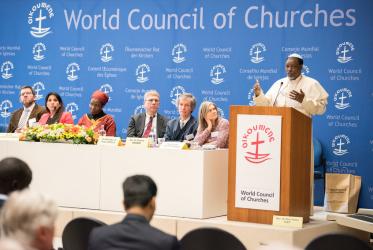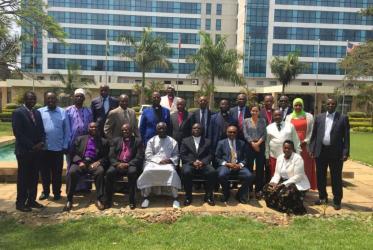Displaying 41 - 60 of 86
WCC leader offers Steve de Gruchy Memorial Lecture
24 April 2018
Walking together against hatred and violence
26 February 2018
Turning plans into action to prevent incitement to violence
14 February 2018
In Nigeria, WCC workshops focus on human rights
04 December 2017
African women embark on pilgrimage in Burundi
29 November 2017
An interview with the Ethiopian Patriarch, Abune Matthias
14 February 2017
Nigerian Christians and Muslims open historic peace centre
20 August 2016
In Ghana, women bring open minds, honest words
05 July 2016
Religion: Way of war or path to peace?
30 June 2016
